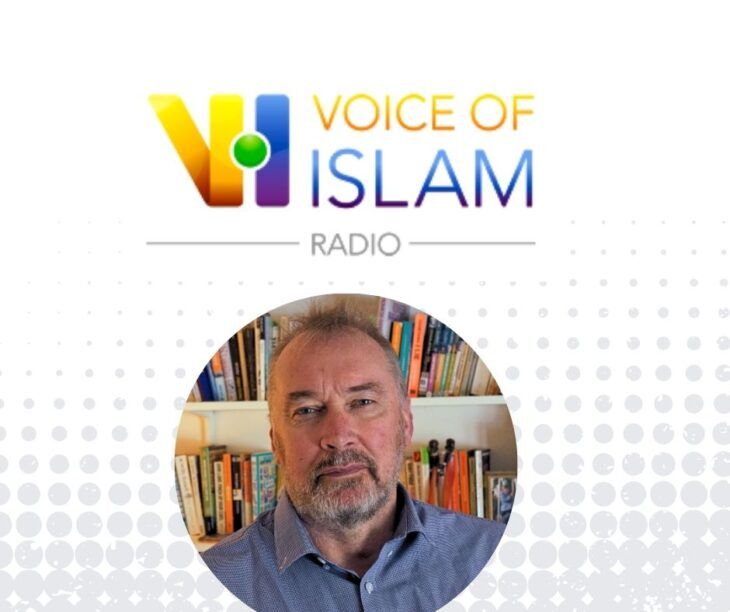Voice of Islam radio station shedding a light on addiction

On 1st July, Mike joined host Amatul Khan on the Drive Time show to help educate, share and destigmatise addiction in all forms – from alcohol and drugs, through to phone and social media addiction.
Listen again via Soundcloud
This was an important platform for Forward in helping to share our first-hand knowledge of the dangers of addiction; in the Muslim community drugs and alcohol are Haram (forbidden) and this can lead to a huge sense of stigma and shame surrounding addiction.
There are also noteworthy statistics around mental health in the Islamic community:
- 32% of young British Muslims have encountered suicidal thoughts
- 52% have suffered from depression
- 63% struggle with anxiety
A report by the Muslim Youth Helpline found evidence to suggest that the rates of depression have been higher within the British Muslim community (compared to the general population) and that people of Muslim faith are less likely to seek treatment.
Barriers to seeking treatment tend to converge around community shame and stigma, where there is a restriction on alcohol use for those with an Islamic faith.
Evidence also suggests that people belonging to ethnic minority communities are less likely to access services, and may be less likely to seek help for alcohol use until they have experienced serious health consequences.
There are multiple barriers to seeking help, including;
- low awareness of health implications of excessive drinking / substance misuse
- mistrust in the confidentiality of support services
- difficulties navigating services and problems not being recognised by professionals
- language and translation worries/uncertainties
- not being aware what support is available
There are some providers who offer 12 Step programs designed for people from the Muslim community as an interpretation of AA’s 12 steps. This is very similar to the 12 Steps but more closely based on the beliefs and principles of Islam.
In our own residential rehab services, The Forward Trust supports clients of faith with access to the mosque and a halal diet, and we adapt our programme to fit around the Islamic faith.
Our history of working with Muslim clients in 2023-24 covers a range of service settings including community, prisons, residential, probation and central services e.g. Recovery Support/Vision Housing, with promising recent statistics showing:
• 1602 referrals
• 1580 completed assessment
• 1462 started structured treatment
• 469 successfully completed (within 2023-24)
As part of our ongoing efforts to work across wider communities of all faiths (and non), our national campaign, Taking Action on Addiction, created a new film for Addiction Awareness Week 2023 – Everybody Knows Somebody.
This title is knowing reference to the many different people who are impacted by addiction; friends, friends of friends, neighbours, old school friends, work colleagues, distant (or not so distant) family members who are in active addiction or who have perhaps overcome it.
Yet, despite this, when addiction touches people in a directly personal way, people find it difficult, almost impossible at times to find ways to talk about their experiences.
We need better understanding of cultural nuances and adapt existing services to take them into account. If we do that we can remove the unseen hurdles members of ethnic minority communities and people of different religious backgrounds have in accessing recovery services.
Addiction needs to be treated as the serious mental health condition that it is. We must challenge the stigma and get better access to support so that recovery can be possible for everyone.